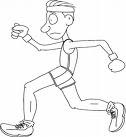
The town of New Portland is participating in the Maine Community Heritage Project this year. This project will allow the town of New Portland to add many of their artifacts to the website www.mainememory.net.
We are just in the beginning phases at this point, but by June of 2009, we will have between 100 and 200 artifacts and at least 5 exhibits on the Maine Memory site. Please visit often and keep up with all of the additions that will be taking place quickly.
Here is some information from the Maine Memory Site about this project:
New Portland: The New Portland team—a partnership between the New Portland Community Library, New Portland Historical Society, and MSAD #74—has created a new partnership to document and share the town's history for the upcoming bicentennial and the 20th anniversary of their library. New Portland is a small town on the Carrabassett River in western Somerset County
Maine Historical Society, in partnership with the
Maine State Library, is excited to announce that the first eight Maine communities have been selected to participate in the
Maine Community Heritage Project (MCHP). The communities are:
Bath,
Farmington,
Hampden,
Islesboro,
Lubec,
New Portland,
Presque Isle, and
Thomaston.
The Maine Community Heritage Project is an innovative new program that promotes collaboration between local schools, historical societies, and public libraries through the exploration and celebration of local history. It grows out of the Maine Memory Network (www.mainememory.net), the Maine Historical Society’s nationally recognized statewide digital museum, and is supported by a National Leadership Grant from the Institute of Museum & Library Services.
The Maine Historical Society received fifty applications for the program. Applications were reviewed by a panel of librarians, educators, and historians and evaluated based on the team’s enthusiasm, commitment to local partnership, and ability to complete the project. Selection of communities also took into account the geographic, economic, and social diversity of the applicant pool and overall balance of the eight teams.
Eight additional communities will be selected next spring to participate in a second project cohort that will run from June 2009-June 2010. Application guidelines will be posted in early 2009.











